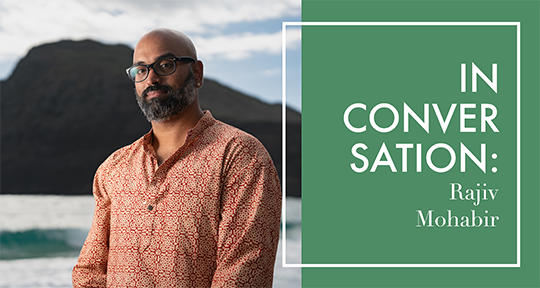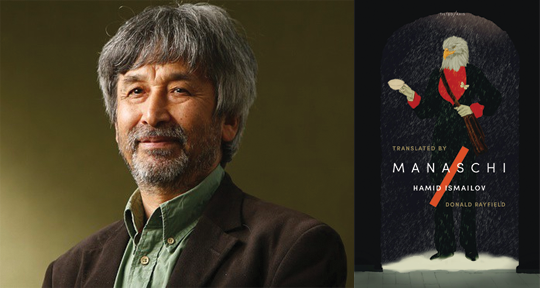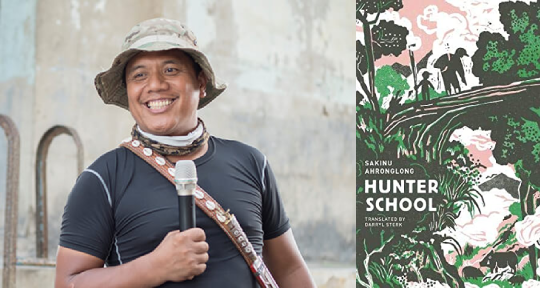The cover of I Will Not Go: Translations, Transformations & Chutney Fractals features “Ties That Bind,” a mixed media piece on archival paper by Renluka Maharaj. In the pixelated color photo of an Indo-Caribbean wedding, the groom is about to fall asleep, the bride looks demure—perhaps trying to hide her laughter, carefree children chat in the corner, two fierce-looking women look daringly into the camera, and an elder female relative holds a moneybag. Following the ingenuity and the personality of the anthology’s cover—with sequins that imbue historical reality with fantasy—the contents of the text, divided into an introduction and five sections, are even more astonishing. I Will Not Go contains two translations, two fractals, and various lyrical essays about the translation/ writing process of seventeen Indo-Caribbean writers: Krystal Ramroop, Aliyah Khan, Divya Persaud, Kaneesha Cherelle Parsard, Nadia Misit, Alex Bacchus, Simone Devi Jhingoor, Andre Bagoo, Eddie Bruce-Jones, Anu Lakhan, Will Depoo, Natasha Ramoutar, Nicholas Peters, Anita Baksh, Miranda Rachel Deebrah, Elizabeth Jaikaran, Suzanne Persard, Chandanie Somwaru, and Ryan Persadie. Like Maharaj, each of the featured translators are descendants of indentured South Asian peoples or part of the Coolie diaspora in the Caribbean.
In Mohabir’s foreword, “Like Chutney Masala,” he describes the music that fuels these writings and translations: “Chutney music as cultural production is poetry: oral and performed. There is flexibility in the writing down of these words, the singing of them, the performance of them.” In terms of its sound, it “blends Afro-Caribbean beats with Indo-Caribbean experience and music.” Beginning with the base of two chutney songs, the translators reimagine the music and lyrics, adding their own inflections and personality that is oftentimes “smoothed out” as incorrect in the Western publishing process. As this multivocal and imaginative collection seeks to reveal, chutney music forces its listeners to hear in its lyrics and melodies the gender violence, sexism, and expectations of marriage within the Indo-Caribbean community—“an open secret.”
Tiffany Troy (TT): In your foreword to I Will Not Go, “Like Chutney Masala,” you wrote of how this collection is “. . . a kind of Caribbean, diasporic response to [Eliot Weinberger’s] 19 Ways of Looking at Wang Wei. . .” How does I Will Not Go draw inspiration from and go beyond 19 Ways of Looking at Wang Wei in its conceptualization of chutney music?
Rajiv Mohabir (RM): For me, this book extends into a kind of spiritual realm whereby the translators all are descendants of indenture, and as such, they hold the particularities of our diaspora’s nuances in particular regard. What I mean is that this is not just an academic experiment; this work blends our own familial histories, our embodiments of music and rhythm, and writing skill. While 19 Ways of Looking at Wang Wei uses the editors’ essays to discuss what each translation does, the translators in I Will Not Go respond to their translational acts.
This brings me into another element that differs from I Will Not Go from Weinberger’s text: the translators add their original poetry that responds to their individual vision of chutney music’s afterlives. That we are haunted by our language loss is no secret—this is how colonization worked for many of us; we take in the colonizer’s messages about ourselves, and they go on to dwell in the deepest parts of our psyches. This anthology plumbs that depth, reaching into ourselves to see where chutney music (if it does at all) lives and loves inside of us. It’s personal and intimate, wrapped up in identity and ancestral trauma and joy. READ MORE…



